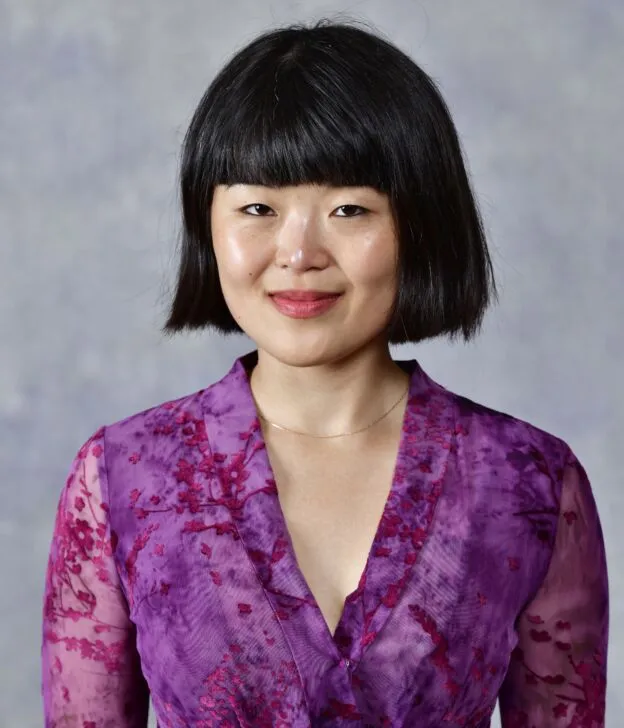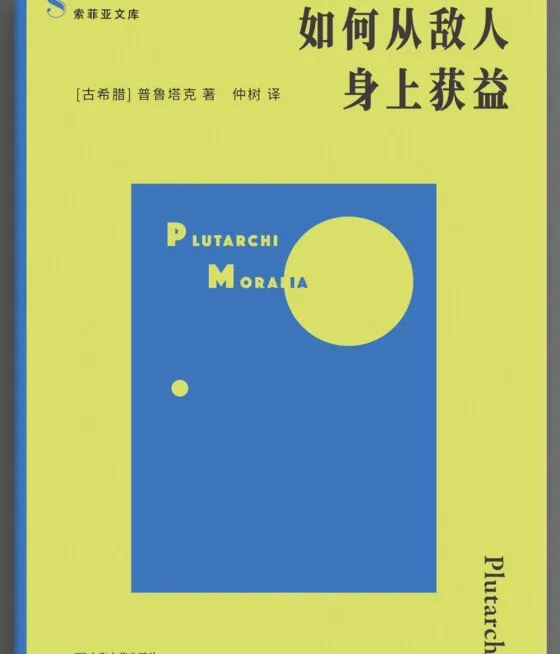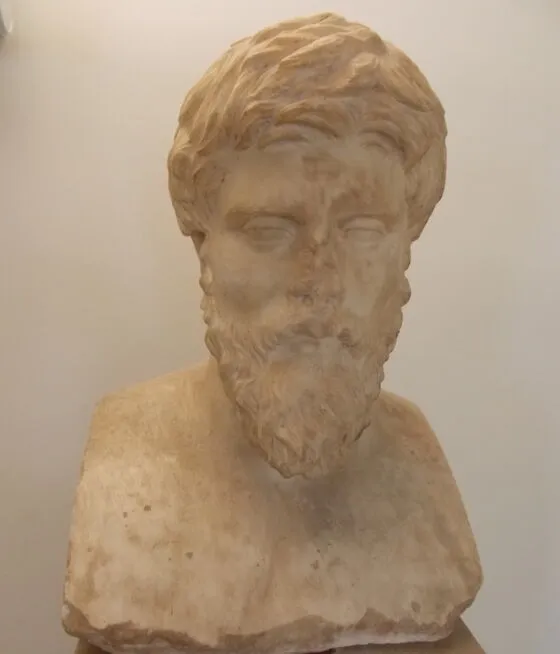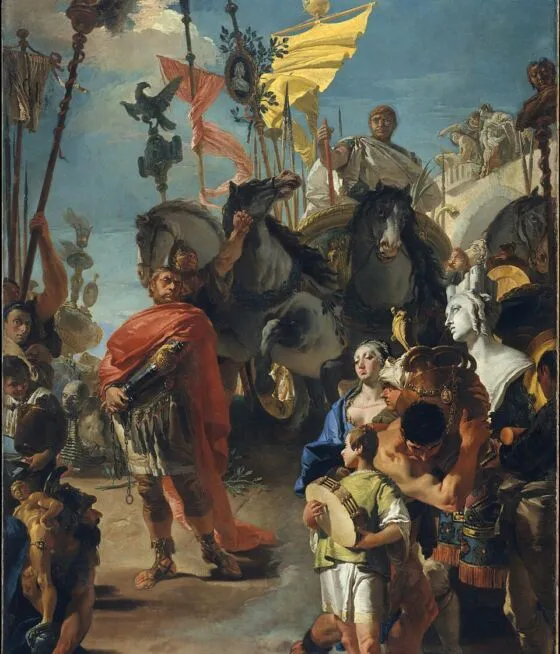
An interview with Yiyang Zhuge
JMC Resident Historian Elliott Drago sat down with JMC Fellow Yiyang Zhuge to discuss her Greek-to-Chinese translation of Plutarch’s Moralia. Ms. Zhuge is a Political Theory PhD Candidate at Boston College, lecturer at Brandeis University, and the graduate assistant at the John Marshall Project at Boston College.
ED: What inspired you to study political theory?
YZ: I entered Boston College having studied four years of Ancient Greek and Latin and as an undergraduate student of classics. I was deeply unsatisfied by the courses in the Classics Department, which were literature, philology and history surveys offered without explanation of why they should matter. I started taking random courses in different departments of the humanities and was tricked into taking Professor Susan Shell’s Kant’s Third Critique because she told me “It is about art, which you already know.” That graduate seminar was so insanely impenetrable for me that I would either cry like Achilles or fall asleep in class.
The late professor Robert Faulkner and friend of the Jack Miller Center was sitting in on that seminar and took an interest in me. He was already retired at the time, but kept an office on campus. I would go to his office and chat with him for hours every week about Shakespeare, Burke, Bacon, Aristotle, and Lincoln. Witnessing the incredible friendship between Shell and Faulkner also convinced me that studying political theory can give me friends like that. Starting the next semester, I took only political theory courses for the rest of my undergraduate studies and continue to study political theory to this day.
Bridging Worlds
ED: Congratulations on completing the first Greek-to-Chinese translation of Plutarch’s Moralia—a work bridging two languages unfamiliar to most Americans. How did you approach such a challenging linguistic and cultural translation? Given that your secondary and higher education took place entirely in the United States, what motivated you to publish in Chinese?
YZ: Studying Aristotle with Professor Robert Bartlett, who produced the best English translation of the Nicomachean Ethics, set an exemplary model for me. He would teach his seminars just with the Greek text and sight read, which, for me, forces one to think like Aristotle every time when a question about the text is asked.

YZ: Allan Bloom, the greatest American translator of Plato and Rousseau, was the teacher of many of my professors. Professor Shell told me over lunch once that Bloom’s way of reading closely and carefully was to become a translator. I now understand what she means. Translating Plutarch means for me having to consider every word he uses, tracing every reference to Homer or Euripides, and since I cannot assume any prior Greek knowledge—especially from Chinese readers—I must explain in footnotes the context and reason for those literary works being cited, many of which I must admit I haven’t figured out.
Plutarch was a Greek living under the strongest empire the world has ever seen, which guaranteed unprecedented civil liberty to its citizens. He remained quintessentially Greek but developed a genuine love of Roman culture and history. He learned Latin as a second language in his late teens but became able to speak and write it so well that Roman historians like Tacitus and Suetonius would continue to cite him. He understood the Roman Empire better than most Romans. All these qualities distinguish Plutarch from his contemporaries but bring him close to my own life.
The American political culture and education system, with its unprecedented openness and excellent erudition, provided the structural conditions that allow me to pursue a relatively peaceful life of thinking and writing. I, like Plutarch, don’t take such protection for granted.
Bridging the gap
ED: Plutarch may seem distant to American readers—and even more so to Chinese audiences. How can educators bridge this cultural gap, and what is the value of teaching Western classics in non-Western contexts?
YZ: The Western tradition was imported into and voraciously absorbed by non-Western cultures (I am speaking specifically about East Asia) in the 19th and 20th century only in its revolutionary form. The West was first introduced in China in late 19th century as “Mr. Science,” “Mr. Democracy,” and “Ms. Freedom” in its Enlightenment progressivism, then in the form of Marxism, and now in the form of post-modernism. The Ariadne’s thread that links those three waves is clear if we see how eagerly open-minded Japanese, Korean, and Chinese intellectuals embrace and adopt those three stances sequentially. Needless to say, this is an impoverished understanding of the West.

YZ: And it is frankly bad for the West; because it has successfully convinced large swaths of non-Western intellectuals who are most open to learning from the West that the Western tradition ought to be chipped away and ultimately abolished. The Western tradition in its current form has self-castrated its evangelical function. It is not offering foreign inquirers any reason to love it and become its friends. Instead, it is supplying them with plenty of reasons and weapons to contribute to the suicide and self-denouncement that so many Western intellectuals are heroically engaged with and consider to be their vocation.
So, in a small way, by translating Plutarch, I understand myself to be correcting this impoverished view of the West and restoring the richness and complexity of its tradition. In the long introduction I wrote for my translation, I try to draw my own Ariadne’s thread from Plutarch to Shakespeare, Montaigne, Rousseau, Washington, John Adams, Jefferson and Hamilton.
I show that great people read this great work that recorded many deeds of other great people. The Western miracle of progress and liberty that so fascinates non-Western intellectuals may not simply be a result of its science and rationalism, but also because of its virtue and wisdom.
ED: Do you observe any attitudinal differences between Americans and Chinese toward Classical Western thought?
YZ: Ordinary Chinese readers don’t understand themselves to be the inheritors of the Western tradition and the liberal tradition, which makes them free from the prejudices of both, and in this sense, makes them closer to the Greeks. They are not burdened by the philosophical self-criticism and guilt laden in the current Western tradition; nor do they take tolerance, political freedom, democratic equality as lived experiences and therefore indubitable truths. Incidentally, a people whose tradition and religion have been uprooted and annihilated by materialistic dialectics for a whole century are in a much more self-conscious state of spiritual crisis. This makes the average Chinese much more ready to drink from the fountain of ancient wisdom. I don’t think Americans can confront Classical Western thought with the same innocence that Chinese can. Americans have the blessings of being the last bulwark of those two great traditions, but every blessing comes with its corresponding duties.
Exemplary models
ED: How can the study of virtue equip educators to deliver a civic education that is both well-grounded and historically informed?
YZ: To teach civic education is to teach virtue, and to teach virtue must be more than to criticize vice, however sophisticated and profound those criticisms might be. Moreover, to teach virtue is not to “know about” virtue, but to recognize virtue in its greatness and to praise virtue because it is praiseworthy. This means that to teach virtue is not to teach morally neutral theories about virtue, but to inspire emulation of virtue, and to guarantee that virtuous human beings will be recognized and praised by the properly educated.
This kind of teaching is best done through reading about exemplary models of virtuous and great people. Plutarch was well-versed in but distinguished himself from historians such as Herodotus, Thucydides, Xenophon, Theopompus, Polybius, and Sallust. In the opening of the Life of Alexander, he confesses that he did not see himself as a writer of “history” but as a writer about “lives,” to show the virtues of those lives.

No one has succeeded more splendidly in making us admire and love the virtues of the greats of Greek and Roman Antiquity. In this sense, Plutarch may be one of the greatest civic educators.
ED: What has your research taught you about America’s founding principles and history?
YZ: Plutarch was the Founders’ favorite biographer. They wrote pamphlets using pseudonyms of Plutarch’s Roman heroes: Publius, Camillus, Fabius. Americans of the revolutionary and early republican eras debated questions raised in Plutarch’s books and, through those debates, developed a profound attachment to republicanism and enthusiastic love of liberty. The Founders idolized Plutarch’s Themistocles. They took Plutarch’s teachings of the Persian Wars seriously after the Revolutionary War about the superiority of republican government to centralized monarchy. They were divided on the status of Sparta: Samuel Adams and John Dickinson praised Spartan virtues of frugality and courage, while Thomas Jefferson, Alexander Hamilton, and John Adams found its militarism and harsh regulation abhorrent. The Founders’ decision to design a mixed republic, instead of a democracy, owes in a big way to Plutarch’s (and Thucydides’) ambiguous portrayal of Athenian democracy.
ED: What’s one thing you wish that every student knew about the American political tradition?
YZ: The Founders were deeply alarmed by Plutarch’s description of how Greece was conquered by Macedon and Rome because the city-states lacked a powerful union. At the Constitutional Convention, James Madison compared the Greek disunity that led to its enslavement by the Macedonians to American disunity and its potential dangers.
A free people who exercise their liberty only in constant internal strife rather than in the formation of a strong union risk losing this precious liberty.
ED: Thank you for your time!
Dr. Elliott Drago is the JMC’s Manager of Network Engagement and Resident Historian. His research focuses on the politics of slavery in the United States and his book is entitled Street Diplomacy: The Politics of Slavery and Freedom in Philadelphia, 1820-1850 (Johns Hopkins University Press, 2022).
